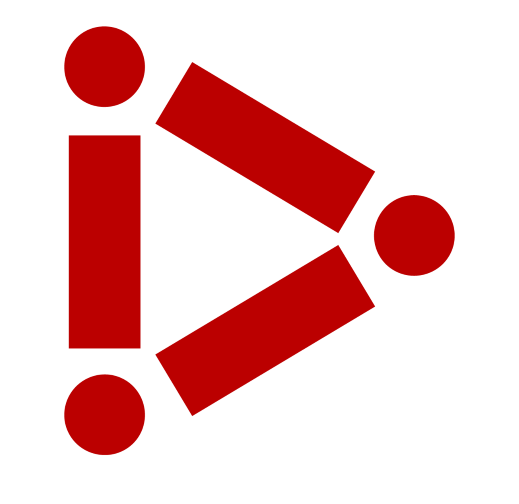
Carnegie Mellon’s # Hack-a-Startup Competition
The annual Hack-a-Startup competition is one that brings the CMU community together yearly. This year, the competition was hosted by MIIPS alums and current MIIPS students competed.
By Hannah Brelsford
The Hack-a-Startup competition is the largest student-run competition at Carnegie Mellon University that focuses on how students can turn their ideas for innovation into startups. Over two weeks students are mentored by professionals within industry and go through many workshops to formulate their final idea that they submit in the competition.
This year the competition wrapped up on November 16th culminating in teams winning awards totaling up to $10,000. With the most competitive year to date, the competition initially had 300 registrants. In the end, 15 final teams went to over 10 workshops and conducted over 50 customer discovery interviews. These learning opportunities were conducted by industry experts and facilitated by the group's mentors.

The competition was organized by Master of Integrated Innovation for Products & Services alums Amanda Manget ‘24, Daniela Decoud ‘24, and Nisarg Doshi ‘24 who are on the board of the Graduate Entrepreneurship Club at CMU. Together they bring experience both within startups and investments. Amanda had experience at a health-tech startup in Toronto, Daniela helped launch startup products in Uruguay, and Nisarg is a partner at 99 Tartans, an angel investment network that works to support CMU alum startups.
Hack-a-Startup annually brings together students from all educational levels within the CMU community and across all different academic backgrounds to tackle problems with innovative solutions. The competition works to push students beyond their comfort zones to learn more and build up ideas to create new solutions that change the world.
This year's competition was sponsored by Accel, Pittsburgh Regional Health Initiative's Patient Safety Technology Challenge, and InnovatePGH. These companies helped participants develop their ideas for innovation and unlock the tools they needed to do so.
The competition culminated with the finalists pitches that they gave to a panel of judges. Judges included startup founders, people within academia, the tech industry, and venture capitalists.
Competition winners included Team PlanWise, Relayd, and Solstis. Read more about the winners, the prizes they received, and their processes to make it to the finals.

Team PlanWise
Team Members: Max Hsiao (Tepper, MBA), Aimee Langevin, (SCS, MSAII), Amine Bouayad, (MCS, MS-DAS), Anshika Agarwal, (iii (COE), MIIPS), Jacinto Suner, (SCS, AI), Ethan Hilton, (B.S. AI & Business)
Prize: $4,000
Team PlanWise placed first in the competition with their AI solution to help improve dental treatment plans. The challenges the platform addresses are the inaccuracy of treatment plans from limited research and the lack of transparency within patients care with their insurance. This included reducing occurrences of malpractice and enhancing transparency within the industry.
The team focused on something competitors often miss, which is evidence-based treatment plans that integrate both medical history and previous research within the industry. This plan produced by PlanWise utilizes AI that can be modified by the doctor if needed. This process allows for a better decision making plan for dentists and accessible information for patients.
The biggest challenges they faced throughout the competition were the complexities of the dentistry workflow while also keeping patients a top priority. Despite this balancing act between dentists, clinics, and insurance companies the team was able to come out with a successful solution.
During the two weeks in which PlanWise was born the team was able to do customer discovery and gain deeper insights into industry problems, talk to dental clinics nationwide, and gained $100,000 of letters of intent. These letters of intent were from clinics who wanted to adopt the prototype.
Anshika Agarwal, MIIPS ‘25 emphasized that the MIIPS curriculum helped within the teams process, “The MIIPS curriculum, which emphasizes product development at the intersection of design, engineering, and business, enabled me to not only understand the technical and strategic language of my teammates but also communicate effectively across disciplines.”
Team Relayd
Team Members: Abiraami Muthukumar, (MIIPS), Shubhaa Chawla, (MIIPS), Austin Lignell, (Tepper, MBA), Saicharan Emmadi, (MISM BIDA), Neharika Srivastav, (MISM)
Prize: $2,500 + $1,000 Patient Safety Technology Prize
Team Relayd placed second in the competition for their creation of a tool to help nurses focus on patient care by using their AI solution to reduce administrative burdens that they face. It is a B2B SaaS venture that seeks to change the nursing handoff experience. Within nursing jobs they experience handoffs about shift changes and ward transfers. This process can be extremely unorganized and not standardized leading to challenges within their professions. By relying on nurses' memories the process right now currently has many inconsistencies which can affect patients and their health.
Part of their process was talking to nurses about their jobs and the daily problems they face.
“Hearing personal stories from both patients and nurses was incredibly fulfilling, affirming that we’re addressing a big, real, and relevant problem in healthcare.”
Relayd works to assist within the handoff process between nurses to increase patient services and work experiences for nurses. The solution lets nurses take notes on the go. These notes are compiled through the system into a standardized template at the end of their shift. This summary is given to the next nurse for clarity, ensuring a smooth transition for both the nurses and patients between shifts.
Challenges that the team faced were narrowing their issue and target audience to set realistic goals that could be met by the team within the time frame. Despite these challenges the team was able to compete in the Hack-a-Thon and they also won the Patient Safety Award.
“It wasn’t just about the competition; it was about coming together as a team, pushing our limits, and creating something meaningful.”
Team Solstis
Team Members: Pratik Satija, (CIT, AIE), Vignesh Menon (CIT, AIE), Samika Sanghvi, (SCI, CS)
Prize: $1,500
Team Solstis placed third for their solution of a no-code AI solution that focused on automating workflows for project management tools.
